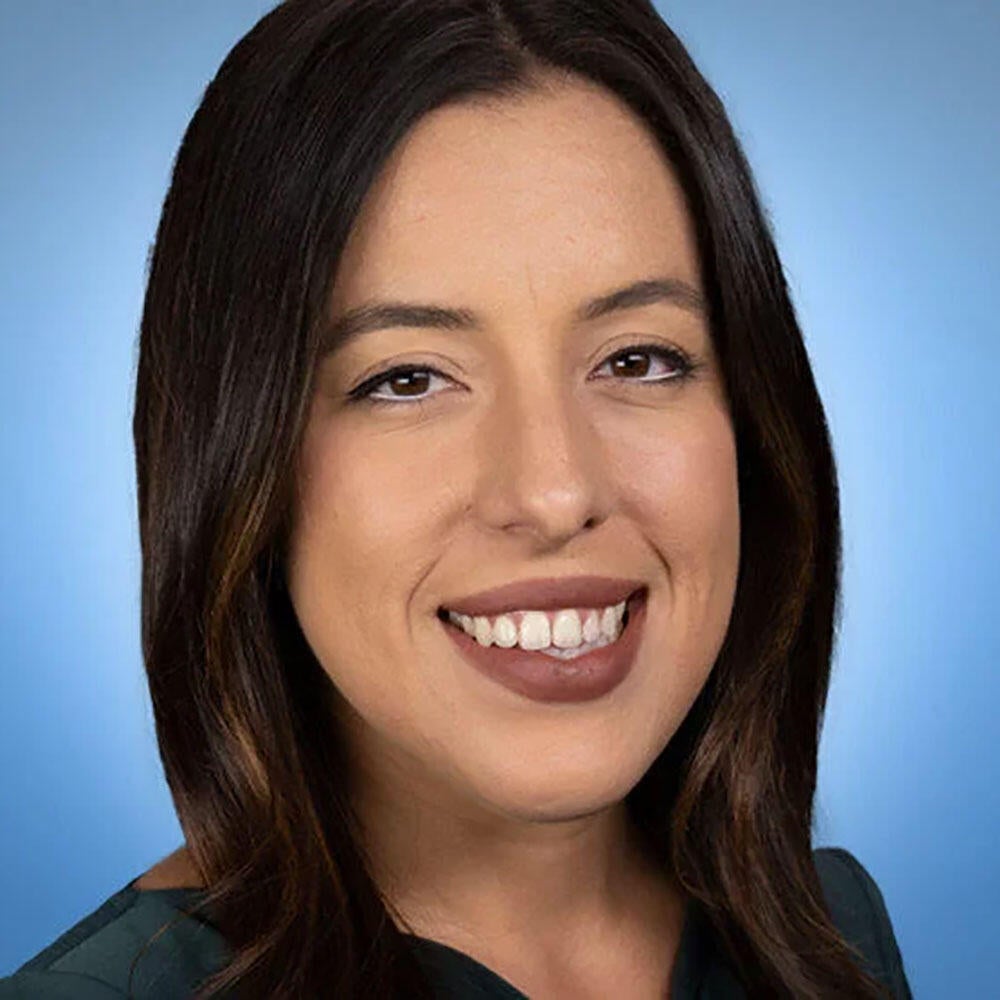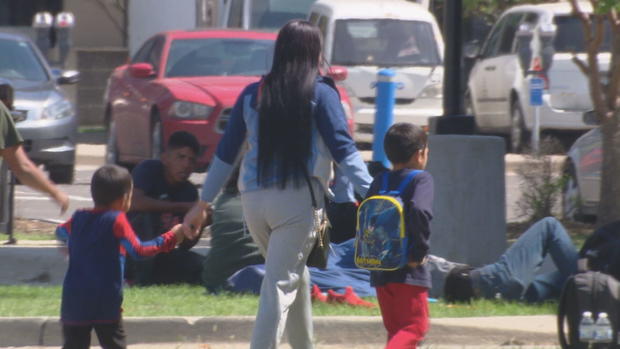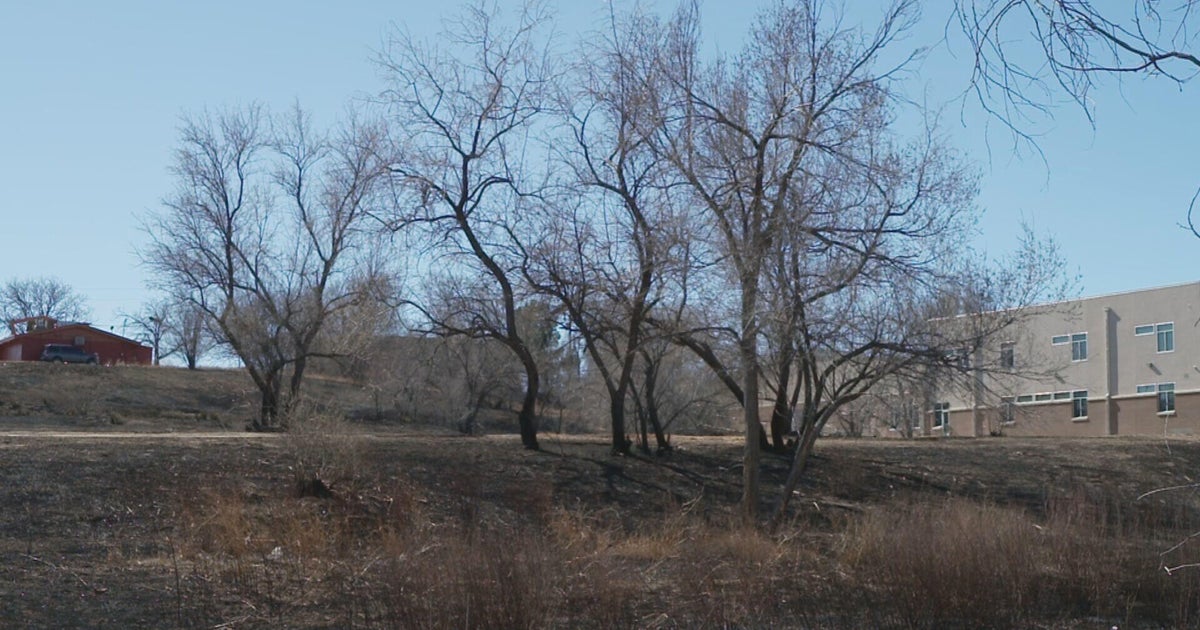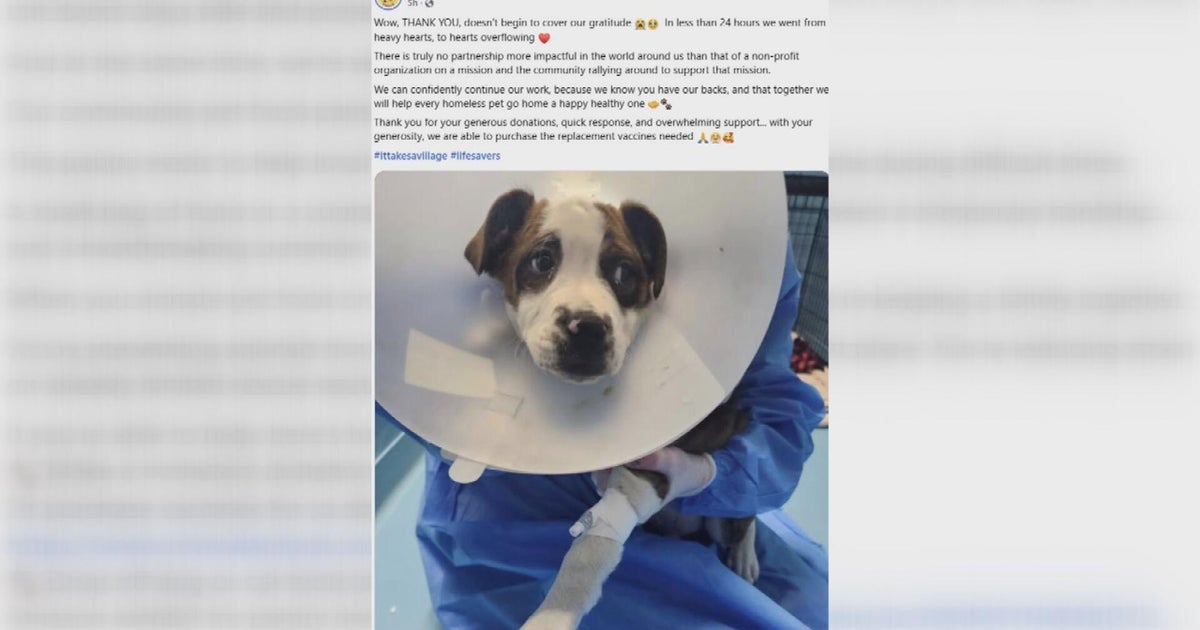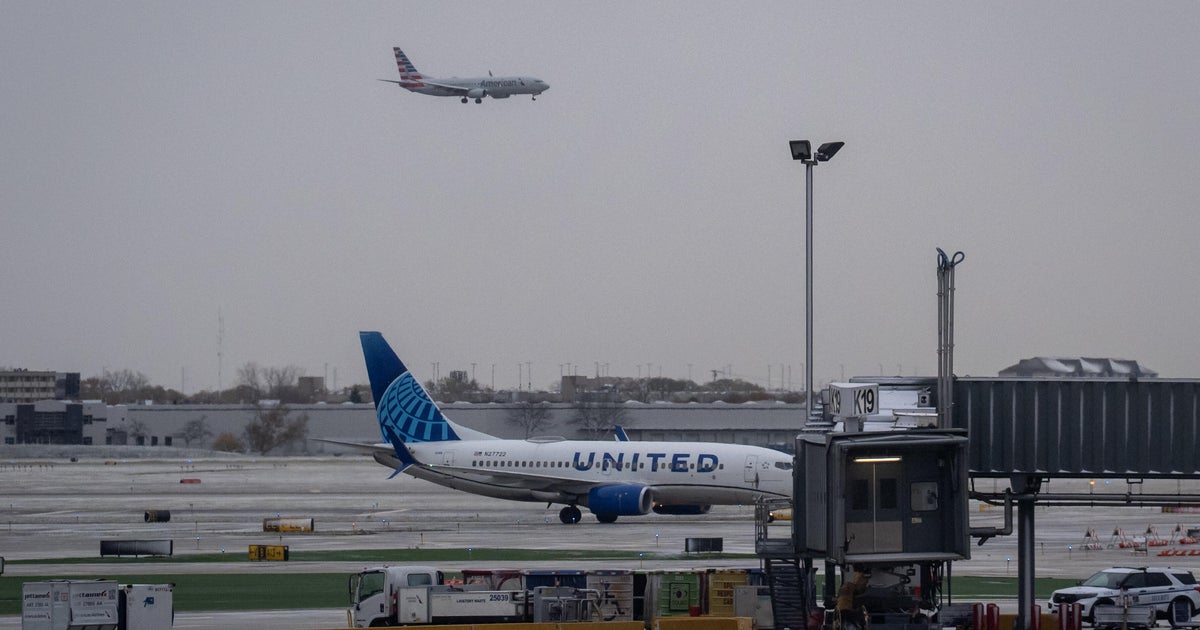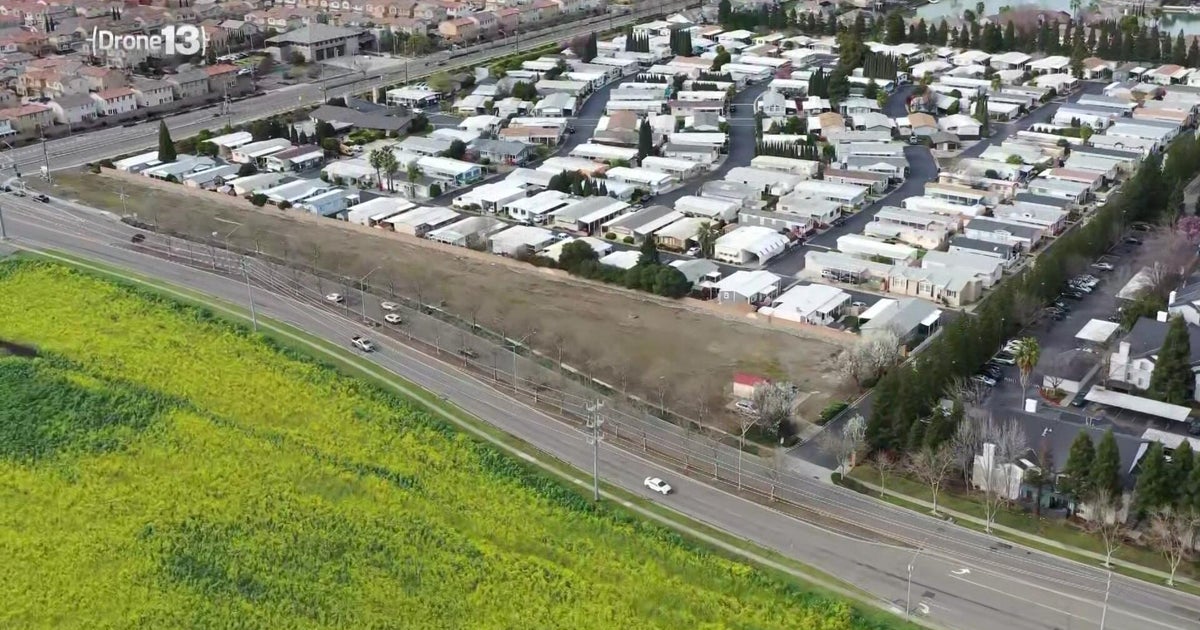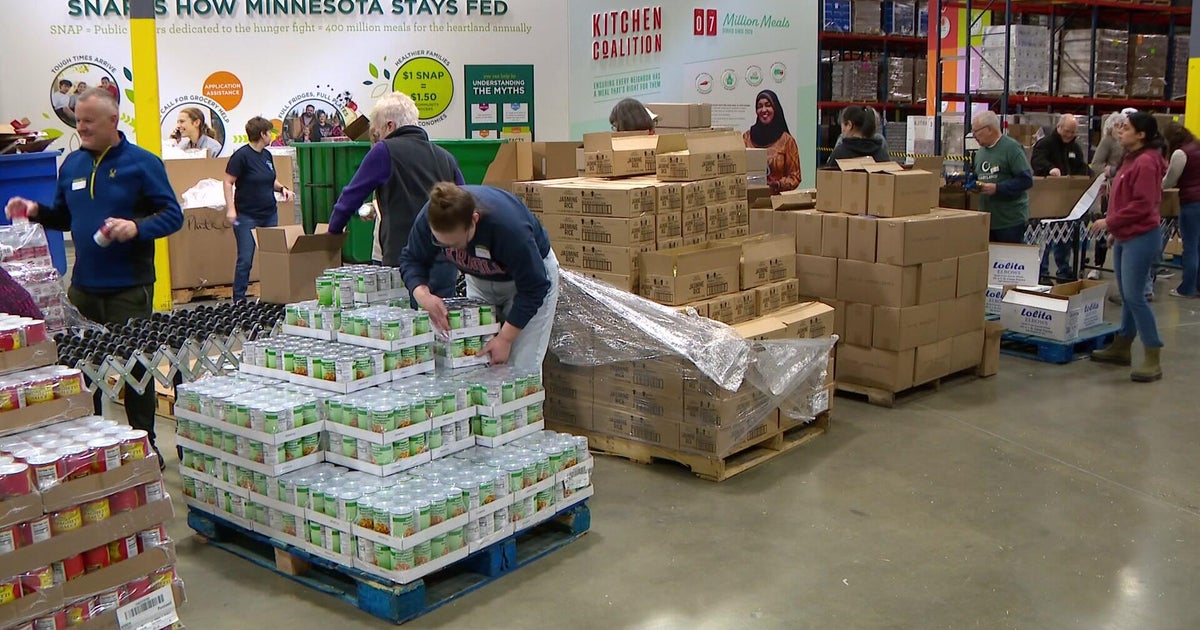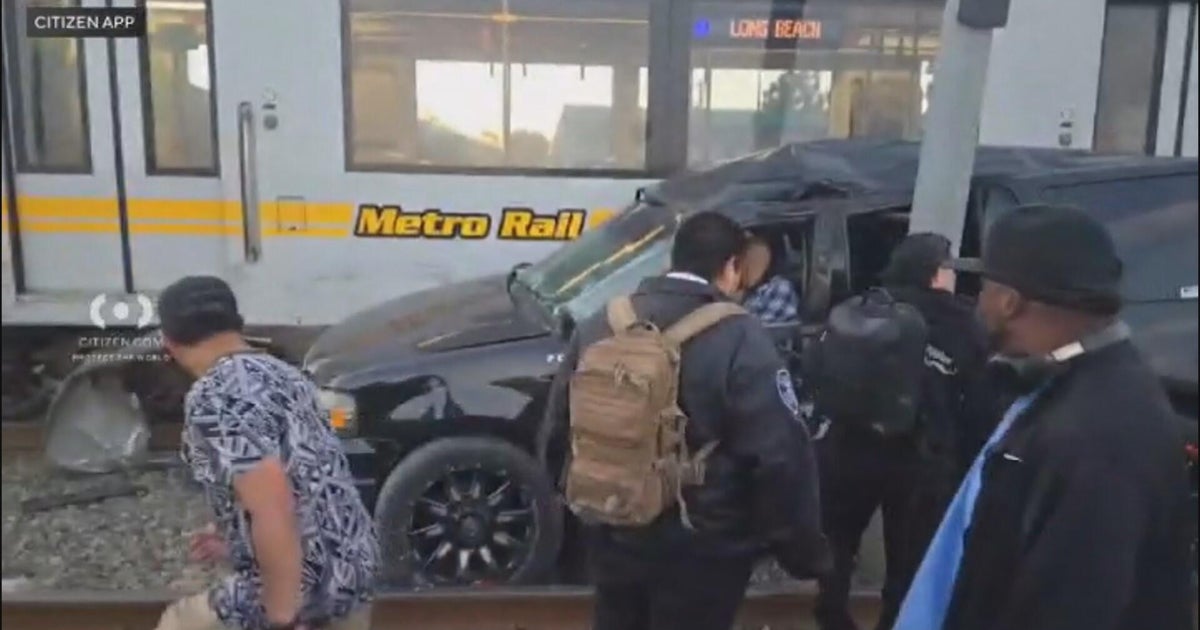City of Denver changes length of stay policy for shelters amid migrant surge
The Denver migrant crisis has ramped up yet again, as the city now moves to change its length of stay policy at its sanction shelters an alleviate resource constraints.
The city has been tracking the number of migrants coming to the Denver metro area since December. On Sept. 2, the city was helping 980 people, but now that number has more than doubled to nearly 2,700. Nine buses arrived in the area on Oct. 1, and the city is now averaging 300 new arrivals each day.
"When it's not nine buses a day, it's four buses a day, it's five buses a day. The pace is pretty unrelenting," said Jon Ewing, a spokesman for Denver Human Services.
With this latest spike in migrant arrivals, the city is now limiting the amount of time in which certain migrants can seek temporary shelter.
Beginning Wednesday, any new adult migrant arriving in Denver will only be given shelter for 14 days, instead of 21. Migrant families with children, however, will have 37 days. This is seven more than previously allotted. This does not impact existing migrants who are already getting shelter services.
"We understand especially when you have young children that it's very difficult, so we want to give you as much time as possible to make your next move, but we are shortening it for individuals without children," said Ewing. "We wish we didn't have to. We really have no choice."
Ewing says the city just does not have enough staffing and shelter space if the rate of migrants coming in continues to increase, especially as the Denver area approaches colder temperatures.
"I'll tell you, we've reached out to city employees and said, 'you want some overtime, you want to pick up an overnight shift? We'd love to have you,' and city employees are answering the call," said Ewing. "But that's a lot to ask your employees to do long term."
Instead, he is hoping for other communities around the Denver metro area to answer the call to help migrants coming in. Cities or towns interested in providing temporary shelter for newly arriving migrants should contact Adam Paul, director of regional affairs for the Mayor's Office, at adam.paul@denvergov.org.
"Denver is a welcoming city. It's a good city. It's full of good people, but we shouldn't have to do this alone, and right now it's Denver and a few other cities that are handling and shouldering the burden of this migrant crisis," said Ewing.
However, the surge in migrants in Denver is already impacting surrounding community groups in Aurora.
"Anyone that is staying more than 3 to 4 days that are staying in Denver or came back to Denver are starting to move into," said Amanda Blaurock. "I would anticipate that if Denver stopped housing people or starts housing people for a shorter period of time, where else would they go other than the Aurora region? Fortunately, unfortunately, it is a cheaper place to live."
Roughly two months ago, CBS News Colorado covered the impact of the migrant crisis at the Village Exchange Center in Aurora. Blaurock, co-founder of the center, says the demand for their health and food services has increased exponentially since.
"We basically are trying to get additional funding because the wrap-around services are really needed," said Blaurock. "I'm working on a community relief fund, trying to get that through on a state and local municipal level, where we can actually have money consistently over the next couple of years to support other nonprofits."
Blaurock is working on multiple ways to continue funding organizations like hers including getting Aurora city leaders to lobby for federal money.
"How do we get FEMA to open up funds to support Aurora and not just Denver and the state of Colorado," said Blaurock. "I'm working on right now a paper to put together to present to the city council members of Aurora so that they can consider lobbying at the federal level with our congressional delegation to be able to open up FEMA money beyond the current recipients, which is just Denver and the state of Colorado."
The city of Denver is also looking for winter donations, including scarves, socks and gloves, to help support incoming migrants. Those donations can be delivered to the Richard T. Castro Human Services Center at 1200 N. Federal Blvd.
